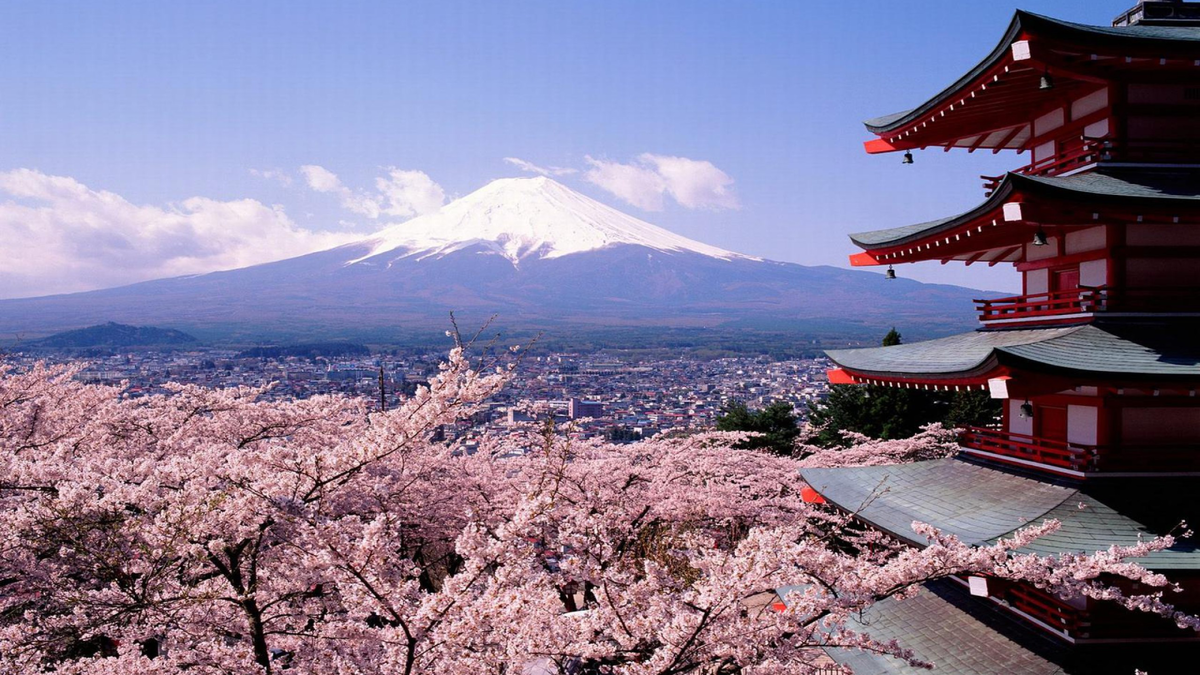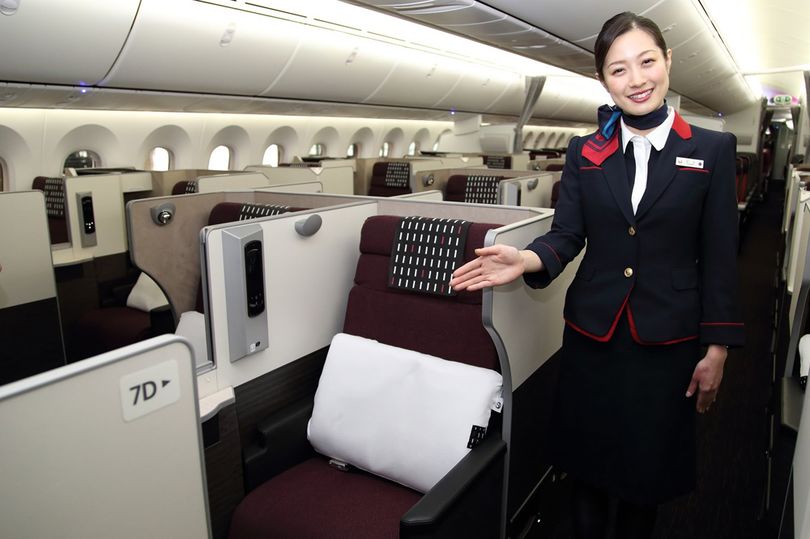Consumer watchdog blocks Qantas, Japan Airlines alliance
The ACCC says travellers would be worse off due to reduced competition on key Australia-Japan routes.

Australia's consumer watchdog has ruled against a proposed joint business agreement between Qantas and Japan Airlines, saying the alliance would leave travellers worse off by reducing competition on Australia-Japan routes as international travel resumes.
"Airlines have been severely impacted by the pandemic and this has been a very difficult period for them," admitted Australian Competition and Consumer Commission Chair Rod Sims.
"But preserving competition between airlines is the key to the long-term recovery of the aviation and tourism sectors, once international travel restrictions are eased."
Qantas and Japan Airlines pitched their plan in December 2020 with the aim of launching it in July 2021 as part of a gradual restart of overseas flying, with Japan considered among several promising 'travel bubble' destinations for Australia.
"The joint business means we'll be able to build on our existing relationship with JAL through Oneworld to offer more routes, better flight connections and more benefits to frequent flyers” Qantas Group CEO Alan Joyce said at the time.
A tighter hold on the market
In 2019, the year before the Covid-19 pandemic swept the world, Qantas and Japan Airlines together flew about 85% of passengers travelling between Australia and Japan.
The ACCC says that in addition to being each other's "closest competitors" on the largest Sydney-Tokyo route, they were the only airlines operating on the second largest route between Melbourne and Tokyo.
"The ACCC concluded that granting the authorisation would not only remove competition between Qantas and Japan Airlines, it would make it very difficult for other airlines to operate on routes between Australia and Japan."
Virgin Australia petitioned the ACCC to say "it would be more difficult to enter the Australia-Japan route if it is required to compete with Qantas and Japan Airlines acting jointly rather than as individual competing airlines," the ACCC revealed.
The ACCC says the Qantas and Japan Airlines alliance "would have allowed the airlines to stop competing on all aspects of price and service for three years."
"The ACCC can only authorise an agreement between competitors if it is satisfied the public benefits would outweigh the harm to competition. The alliance did not pass this test."
Qantas responds
Both Qantas and JAL expressed disappointment at the ACCC's denial of the proposed Qantas/JAL hookup, saying that while the airlines would continue their existing codeshare and Oneworld partnership, this would "not provide the same benefits than would have been possible under a joint business."
The airlines touted "enhanced frequent flyer benefits and more premium travel opportunities for Qantas and JAL customers" as one of the wins for passengers, along with an expanded codeshare relationship "to up to 29 destinations and better flight schedules between Australia, New Zealand and Japan."
Qantas Domestic and International CEO Andrew David said he was "obviously disappointed with this decision. A closer partnership between Qantas and Japan Airlines would have meant more routes, better flight connections and more benefits to frequent flyers. None of these benefits will be realised following the ACCC’s decision."
Cairns-Tokyo route scrapped
"We know the recovery of international travel is going to be slow and bumpy. It will take years for the whole travel and tourism industry to fully recover from COVID, so getting the policy settings right is going to be critical as key routes are rebuilt essentially from scratch. Getting that right will ultimately benefit the recovery of the Australian economy."
David said this also meant Qantas' proposed direct flights between Cairns and Tokyo would not take off.
"Without being able to coordinate with JAL, and in particular to draw Japanese tourists into northern Queensland using JAL's extensive marketing reach in Japan, the planned flights between Cairns and Tokyo are just not commercially viable for Qantas."
However, ACCC head Sims believes Qantas could commence this new route on its own merits, and noted that "Jetstar services on this route are currently planned to start again from February 2022, without the alliance."


American Airlines - AAdvantage
13 Jul 2015
Total posts 275
Qantas aren't known for their pricing so this would certainly not help.
17 Jun 2020
Total posts 235
Excellent news.
Any small consumer benefit would be more than offset by capacity reductions and predatory pricing. Qantas and Japan Airlines would have a near monopoly of the market.
Qantas
19 Apr 2012
Total posts 1429
I’m not sure why Singapore airlines and Cathay are not considered competition as the both have very good connections to Japan and can easily market competitively simply because they can offer very good deals and not have to fill a plane
05 Mar 2015
Total posts 421
Probably because very few people would want to fly from say Sydney or Melbourne to Tokyo via Singapore or Hong Kong instead of going direct. Maybe some budget-minded travellers but most people including holidaymakers and definitely business travellers would want to fly direct because it takes a lot less time. If you look at Sydney-Tokyo that's 9.5 hours direct, if you go Sydney-Singapore that's 8hrs, then Singapore-Tokyo is another 7hrs, and of course you also have transit time, allow 2 hours at Changi, so you're talking about 9.5hrs direct versus 17hrs, that's almost a whole day and twice as long as going direct.
Qantas - Qantas Frequent Flyer
04 Nov 2017
Total posts 352
Pheaps because the regulatory bodies were taking only non-stop flights into consideration, rather than the 1-stops, which are largely assumed to be picking up 'low yield' passengers ex-Australia.
Though I'm not sure if QF/JL would be interested in picking up the low yield 1-stop pax, which are better suited for their LCC arms anyway.
05 Oct 2017
Total posts 526
QFP1 is right. You can choose to transit in a particular city, if the logistics vs a direct flight make sense, i.e. transit times are short and you're not going too much out of your way.
Sydney/Brisbane/Melbourne to Tokyo is straight north, whereas Singapore and Hong Kong are north-west and then you have to fly north-east to get to Tokyo. Doesn't make any sense to do that and that's why no one does it.
However, flying from any Australian city to Bangkok via Singapore or Kuala Lumpur does make sense. SIN/KUL are geographically roughly in the same direction from major Australian cities as Bangkok is, and with a short stopover, travelling times are only 2 hours longer than a direct flight. Additionally, there may be more flight options, particularly for transits via Singapore than flying direct. Notably Adelaide and Darwin don't have a direct flight to Bangkok.
Flying via Singapore to India makes sense too. Air India normally operates only a single flight from Sydney/Melbourne to Delhi, so if your destination is anywhere other than Delhi, travel times may be shorter if you transit in SIN, KUL or BKK/DMK and fly directly to your final destination, whether it's Mumbai, Bangalore, Kolkata or Chennai. Or up to a dozen other gateway cities that can be reached from these SE Asian transit airports.
Finally, flying from Perth via SE Asia or HK to Tokyo could make sense because Perth is all the way over on the west coast and there are only a handful of direct Tokyo services from Perth.
Qantas - Qantas Frequent Flyer
01 May 2019
Total posts 38
When the two biggest carriers in Australia and Japan want to cooperate to effectively dominate the market, this is guaranteed to be good for them; but not likely to be of much benefit to consumers.
Qantas - Qantas Frequent Flyer
21 Jul 2014
Total posts 28
Until last year I travelled every month to Tokyo and have done so for 15 years. I like the free market and this tie up would absolutely screw customers. JAL and QF look for every opportunity to push their J prices up (which is why I changed every month's travel) and the tieup might be convenient, especially post covid, but would kill competition. Well not kill, but quietly suffocate!
23 Oct 2014
Total posts 239
Excellent news - common sense prevails.
25 Nov 2016
Total posts 43
I have flew to Japan via both Singapore and Hong Kong in both Y & J classes, once to Osaka, the rest trips were to Tokyo only. ANA is currently having a promotional fare from Sydney to/from Haneda for $3,000.00 by using their 30.00% off campaign, which is quite affordable. On the contrary, the usual $4,000.00 to $6,000.00 fares to/from Japan by Qantas are quite expensive in comparison. If the non-alliance can maintain the price at the $3,500.00 level or slightly lower, then ACCC is doing its job. As to the Economy return fare pre-COVID-19, it's consistently around the $900.00 mark if you book in advance. Hopefully we can fly to Japan by Christmas 2021.
Qantas - Qantas Frequent Flyer
05 Jun 2014
Total posts 209
No great surprise especially given the proposed VA route (BNE-HND) is now a very long way off if at all.
United Airlines - Mileage Plus
12 Sep 2011
Total posts 338
im going to put my 5c worth in-ANA and Star Alliance airline isnt mentioned I kina liked flying SQ or NH out of Adelaide/syd/per to nrt direct or via SIN then pick up NH First or UA 777300ER Polaris to Washington Dulles with many good *A lounges LH TK and Priority Pass BA AirFrance lounges, as well as multiple smoking/vaping rooms, then a short 50 minutes on UA Express Embraer that day or a few days later after some minor business to uptown NYC La Guardia LGA completely avoid JFK and that hellhole called Newark EWR imho NRT is a perfect transit airport much better than HKG and that dragonhole SIN walking distance first lounges showers and smoking rooms inside First Lounges like LX and LH
Hi Guest, join in the discussion on Consumer watchdog blocks Qantas, Japan Airlines alliance